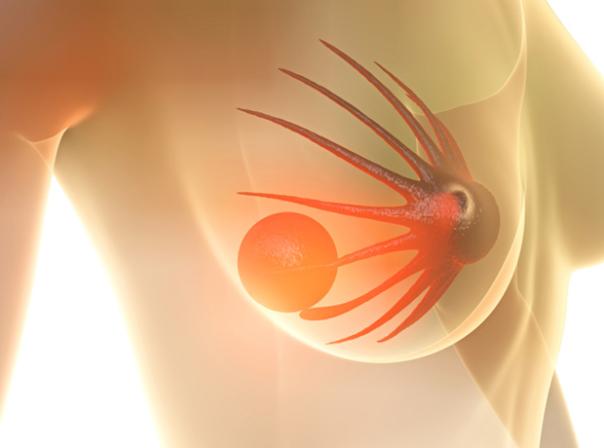British scientists find 37 "addictive genes" that are most difficult to treat triple-negative breast cancer
British scientists find 37 "addictive genes" that are most difficult to treat triple-negative breast cancer
March 15, 2018 Source: Sina Pharmaceutical
Window._bd_share_config={ "common":{ "bdSnsKey":{ },"bdText":"","bdMini":"2","bdMiniList":false,"bdPic":"","bdStyle":" 0","bdSize":"16"},"share":{ }};with(document)0[(getElementsByTagName('head')[0]||body).appendChild(createElement('script')) .src='http://bdimg.share.baidu.com/static/api/js/share.js?v=89860593.js?cdnversion='+~(-new Date()/36e5)];Recently, scientists from the British Cancer Institute (ICR) have discovered a very promising new approach to the treatment of triple-negative breast cancer (TNBC) by blocking the newly discovered "addiction gene". Treat TNBC. Currently, the research team has launched a new drug program to develop new targeted therapies for TNBC.

The gene KIFC1 is one of the TNBC 37 addictive genes discovered by researchers, and any of these genes may be a potential new drug target. The researchers found that blocking these genes slows tumor growth without affecting normal healthy cells. The research team specifically verified the KIFC1 gene (aka HSET) as a drug target for TNBC therapy, and the results of this research will pave the way for the long-awaited development of new TNBC targeted therapies. This landmark discovery was recently published in the international top journal Nature Communications, entitled "Integrated genomics and functional validation identifies malignant cell specific dependencies in triple negative breast cancer". The method was used to identify the specific dependence of malignant cells in triple-negative breast cancer.
TNBC refers to the type of breast cancer that is negative for both estrogen receptor (ER), progesterone receptor (PR) and human epidermal growth factor receptor 2 (HER2), which is clinically used to guide breast cancer treatment. Kind of molecule. TNBC accounts for 10%-20% of all pathological types of breast cancer, and is more common in premenopausal women. This is the most dangerous type of breast cancer. It is aggressive, easy to metastasize, and has a poor prognosis. The survival time after diagnosis is usually not exceeded. In 20 months, the 5-year survival rate is less than 15%.
At present, there is no targeted treatment for TNBC, and the clinical treatment methods are mainly limited to surgery, radiotherapy and chemotherapy. It is estimated that approximately 7,500 women are diagnosed with TNBC each year in the UK.
In this latest study, the researchers performed a genomic analysis of 182 breast cancer samples to find the most active genes, or genes that TNBC relies on. The researchers then narrowed the scope further, focusing on genes known to be associated with features that promote tumor growth and progression. After finding 130 potential "drivers", the researchers conducted an RNAi silencing assay to test the effects of functional loss of these genes on tumor cells and normal cells. It was found that 37 of the 130 candidate genes are highly selective for TNBC malignant cells, the so-called “addictionâ€. These genes can inhibit the growth of tumor cells when silenced, but not for normal cells. influences.
Further analysis, the researchers revealed that a cluster of 13 TNBC addiction genes showed frequent up-regulation, including genes that regulate cell cycle checkpoints, DNA damage responses, and malignant cell-selective mitotic genes. Later, the researchers validated the addictive mechanism of TNBC to one of the potential drug targets, the mitotic kinesin family member C1 gene (KIFC1, also known as HSET), which successfully splits the bipolar division of centrosome-amplified malignant cells to It is important. In recent years, a large number of studies have shown that centrosome amplification is one of the main features of malignant tumors, and its role in tumorigenesis has received increasing attention.
Professor Andrew Tutt, the head of the study, said the study revealed a new set of genetic defects in TNBC, and believes that these new "addiction genes" can be used to find potential new targeted drugs.
The study, funded by Breast Cancer Now, the UK's breast cancer charity, said that the major discovery provided 37 new hopes for thousands of women. If we can develop drugs that block these “addiction genesâ€, and healthy cells are unscathed, this may be what we have been looking for. (Sina Pharmaceutical Compilation/newborn)
Article reference source:
1. Scientists discover exciting new line of attack for hard-to-treat breast cancers
2, Integrated genomics and functional validation identifies malignant cell specific dependencies in triple negative breast cancer
Wireless Breast Pump,Expression Breast Pump,Electric Breast Pump,Function Breast Pump
NINGBO YOUHE MOTHER&BABY PRODUCTS CO.,LTD , https://www.oembreastpump.com